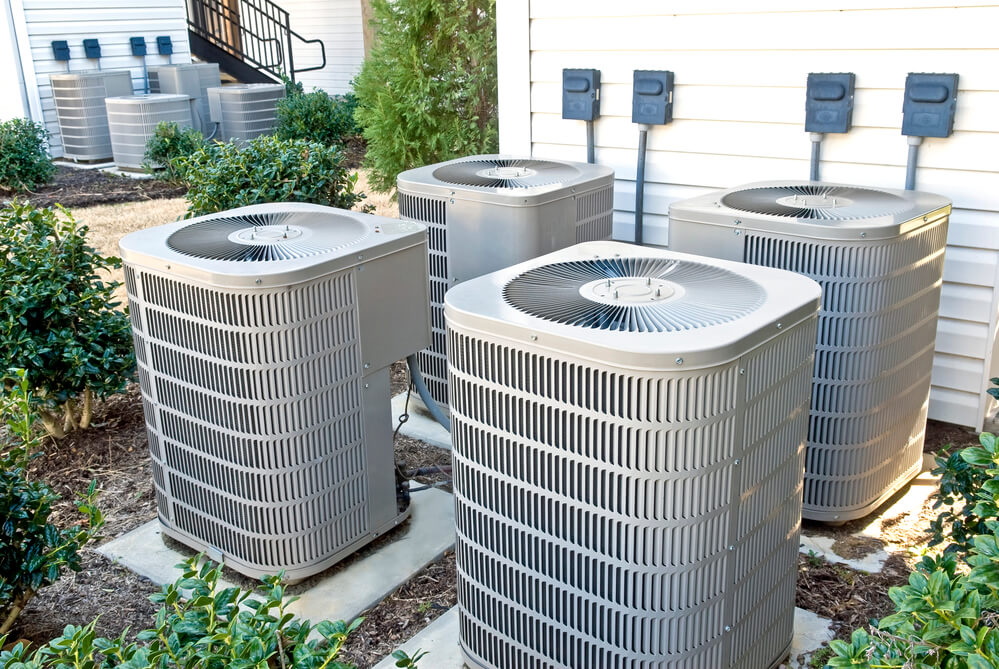
Is Air Conditioning Bad for You?
When it gets hot outside, it tends to get colder inside. There is a direct correlation between the weather and the temperature of our homes and offices. When one goes up, the other quite often comes down, and vice versa. But you may have wondered whether this is a good thing. In other words, is air conditioning bad for us?
Take a Chill Pill
Before air conditioning became mainstream, heating was the primary means of altering temperature. There are plenty of reasons for this, not the least of which is that cold climates are not always hospitable. Time Magazine writes, “Heat was an absolute necessity for people to live in cold climates.” They add that “air conditioning is more of a newcomer on the climate-controlled front.”
Over time, lots of people moved to warmer climates, and the world itself has gotten a whole lot warmer. This has meant that we’ve seen a considerable rise in the use of air conditioning. What was once a world that needed heating has become one in need of a chill pill.
There are several results of this increase in air conditioning. For instance, more scientists and researchers are looking at the effects of AC. This allows us to ask important questions of health and safety, both for us and the environment.
Cool Breeze Refrigeration, AC & Heating Inc. (https://coolbrz.com) explains that the answer to whether air conditioning is bad for you is not altogether clear. Much depends on whether you are asking if AC is bad for you or bad for the planet.
Is Air Conditioning Bad for People?
My guess is that when you asked yourself whether AC was bad, you meant for people. So, let’s start with an investigation of that. It’s much simpler than the environmental question.
For starters, air conditioning could be either good or bad for you. It depends, in very large part, on how well and how often yours gets cleaned. Air conditioners do one thing, but they do it very well. They take warm air and cool it off, then they blow it around your home or office. “Cooling hot air,” Time Magazine points out, “creates a lot of moisture and condensation.” This water has to get whisked off somewhere.
If an AC unit is not well maintained, “it can become a breeding ground for bacteria and fungi”. The mold in the air conditioning is then pushed around your house or place of work. Needless to say, this can make you very sick.
On the flip side, there is the problem of air pollution. In areas where there is a lot of car traffic or manufacturing plants, pollution can exist at high levels. For people with allergies, this problem is only compounded. Depending on your particular allergies, you might even need to find a certain kind of AC unit. Refinery29 writes about one “that actually has a special anti-allergen filter built-in”. They go on to say that air conditioners dehumidify the air. This “can be helpful for people who have asthma or mold allergies”.
The American Center for Disease Control and Prevention also has air conditioning tips. They write, “Air conditioning is the strongest protective factor against heat-related illness.” Put a mark down in the win column!
A lot of people, though, do not have access to air conditioning. The CDC says that when the temperature is approaching 100 degrees, AC is vital. They write that “air conditioning for even a few hours a day will reduce the risk for heat-related illness”. If you don’t have one, “Consider visiting a shopping mall or public library for a few hours.” This can be the difference between life and death, in especially hot places.
Is Air Conditioning Bad for the Environment?
The body is great at acclimating to environments, and AC helps a lot with that. But is air conditioning good for the environment, too?
Air conditioning units use hydrofluorocarbons (HFCs). As The New York Times puts it, “These chemical compounds are responsible for keeping you cool.” They also keep your food cold in refrigerators.
As I mentioned before, you need to keep your AC cleaned and maintained at all times. This not only keeps out the mold and fungus, it prevents HFCs from releasing out into the atmosphere. This is important, because HFCs are very bad greenhouse gases. That said, if yours is clean, HFCs should not go flying into the air.
HFCs are not the only environmental issue with air conditioning units. The New York Times says they “account for about six percent of all the country’s residential energy use.” That amounts to “about 100 million tons of carbon dioxide each year.” I’m pretty certain I don’t need to expound upon the air quality damage inflicted by carbon dioxide. Suffice it to say: it is very bad for both the environment and us.
Keep It Clean and Use When Necessary
To sum it up, air conditioning is not, as a matter of course, good or bad for you. It can be both. It will all depend to a great extent on how you use it and how well you maintain and clean your units.
For a visual look at air conditioners, watch this quick video from Learn Engineering on YouTube. Or, if you’re more of a long-read type and prefer to get all the nitty-gritty details, pick up a copy of this book. You’ll learn all you ever wanted to know about AC.

